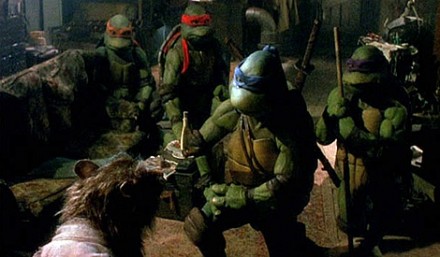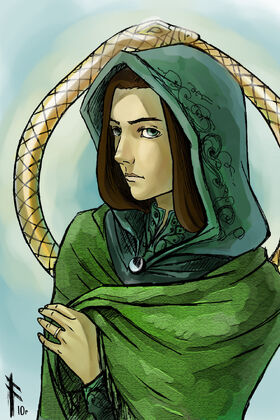I don't think that veganism (or even vegetarianism) will become the dominant mode of nourishment for most people in the developed world anytime soon. Probably not even in this century, if ever. But it is a growing movement. I personally feel that, barring the occasional violent repression, humanity is definitely trending towards increased freedom and equality. As my Dad likes to point out, at the beginning of the 20th century, no country on Earth was a true democracy. Not even the United States. By the end of that same century, democracy was not only the norm, but through the United Nations, democratic nations actually had the power to peacefully impose economic sanctions on states which mistreat their citizens.
So, democracy and freedom are on the rise. People are showing more concern for their fellow humans. But what about their fellow organisms? What about freedom for other types of animals?
 Most people, when asked about vegetarianism, will say that they respect it as a lifestyle, but it's not for them. They admire vegetarians' commitment to animal rights, but they don't personally feel the need to change their eating habits. When pressed, most of them will try to deflect criticism with humor: "Animals may be our friends, but they're so delicious!"
Most people, when asked about vegetarianism, will say that they respect it as a lifestyle, but it's not for them. They admire vegetarians' commitment to animal rights, but they don't personally feel the need to change their eating habits. When pressed, most of them will try to deflect criticism with humor: "Animals may be our friends, but they're so delicious!"This argument doesn't hold much water. Simply because something is easy or pleasurable does not make it morally acceptable. Most people recognize that the meat they buy at the grocery store does not come from animals who have lived a full and happy life on Old MacDonald's Farm (E-I-E-I-O). Even fewer would feel comfortable actually watching a slaughter take place. People feel uncomfortable acknowledging that the meat on their table, until very recently, was a living, breathing animal.
People acknowledge this, but they ignore what they know. I feel it's similar, or at least related to, the tendency to change the channel as soon as a Save the Children ad comes on TV. They feel guilty, and know that they haven't been doing all they could. To open themselves to the suffering of one child means acknowledging the suffering of many more, and facing up to the fact that until that moment, they could have saved lives but chose not to.
 Carnivores say that animals aren't human, and hence don't deserve the same rights. We feed and shelter them, and thus it's within our rights to use them as we see fit. They couldn't survive in the wild anyway, and we keep them safe and well fed for their whole lives, which may be short, but hey, they're not missing too much, right? What's more, eating meat is a central part of many cultures, and has existed since the dawn of time. The last time we tried to outlaw something so delicious and fun to consume was during Prohibition, and that didn't go over too well, now did it? Besides, the meat industry built several major American cities (such as Chicago), and many towns still depend heavily upon it for their economic sustenance. In 2009, the U.S. cattle and beef industry alone was valued at $73 billion!
Carnivores say that animals aren't human, and hence don't deserve the same rights. We feed and shelter them, and thus it's within our rights to use them as we see fit. They couldn't survive in the wild anyway, and we keep them safe and well fed for their whole lives, which may be short, but hey, they're not missing too much, right? What's more, eating meat is a central part of many cultures, and has existed since the dawn of time. The last time we tried to outlaw something so delicious and fun to consume was during Prohibition, and that didn't go over too well, now did it? Besides, the meat industry built several major American cities (such as Chicago), and many towns still depend heavily upon it for their economic sustenance. In 2009, the U.S. cattle and beef industry alone was valued at $73 billion!Well, I hate to break it to you, but these arguments all sound suspiciously like the ones that slaveholders used to argue against Abolition. The fact is that vegetarianism is on the rise in the developed world, and those who continue to eat meat may one day find themselves on the wrong side of history.
...
But what about me? I eat meat all the time! I know the moral implications (as you can see in the blog post above), but I continue to eat it anyway. Even for someone like me, who (more-or-less) knows the science and knows that it would be better to make a change, the process is very difficult. We don't live in a society which encourages vegetarianism. It's tolerated, even accommodated, but it's very difficult to avoid eating animals when even Caesar salad dressing contains pureed anchovies.
Going vegetarian would be better for my health, would help reduce or prevent climate change, would make it easier to end world hunger, and is better for the welfare of my fellow creatures.
So what's stopping me? Am I being too hard on myself? Or am I just lazy?












